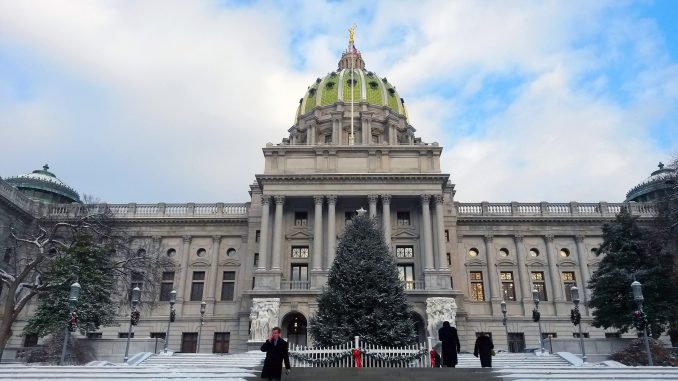
Next month, the Commonwealth of Pennsylvania will decide whether to approve Temple’s request for a 5 percent increase in state funding in a budget hearing for the 2015-16 fiscal year.
Under the current budget, Temple’s Commonwealth appropriation stands at $139.9 million – an amount that has not increased in three years. If approved by the state legislature, Temple’s proposed 5 percent increase would represent a boost of about $7 million.
Regardless of whether the proposal is approved, students should expect a tuition increase for next school year, Vice President, Chief Financial Officer and Treasure Ken Kaiser said.
“[The 5 percent] would potentially mitigate some of the tuition increase but it wouldn’t forestall one,” Kaiser said. “I would expect that we would increase tuition, but I think that we can expect that every year.”
In addition to possibly reducing a tuition increase, the $7 million would be invested into initiatives established by the various schools and colleges at Temple, Kaiser said.
Penn State and the University of Pittsburgh, which are state-related schools like Temple, are also asking the Commonwealth for increases in funding. Pitt has asked for a 14.7 percent increase in state appropriations, a request that Kaiser said is unreasonable.
“Our approach is, ‘That’s never going to happen, so we should ask for something realistic,’” Kaiser said.
Temple’s state funding was cut by around 20 percent, or $32 million, in 2011. Kaiser wants to begin to rebuild what was lost with the proposed 5 percent increase, but he said he does not think the state will accept Temple’s request.
Kaiser said he expects new Gov. Tom Wolf will “focus his first-year budget on K-through-12.”
However, others believe Wolf will make the effort to increase funding for institutions of higher education. Dr. G. Terry Madonna, a prominent Pennsylvania political expert and director of the Center for Politics and Public Affairs at Franklin and Marshall College, said Wolf made education a “huge issue” during his campaign.
“The question is: How big of a priority does Wolf make [funding for higher education]?” Madonna said. “I’d be stunned if funding doesn’t increase.”
He added that the obstacle is the state legislature, which, despite Wolf’s resounding victory against former Gov. Tom Corbett, is still heavily Republican.
Ben Waxman, a spokesman for Sen. Vincent Hughes of Pennsylvania’s seventh congressional district, said voters issued a “mandate” when they elected Wolf, a Democrat. He said elected officials are feeling pressure from their constituents.
“A lot of representatives have schools in their district,” Waxman said. “[Their constituents] are putting pressure on lawmakers.”
Sen. Daylin Leach’s spokesman, Steve Hoenstine, said that students are facing tremendous challenges when they graduate.
“When students graduate from Pennsylvania schools, they face burdensome debts,” Hoenstine said. “They’re getting a bad deal.”
Kaiser said decreased or flat funding keeps that burden on the students.
“Our goal is to keep that tuition increase as low as possible,” Kaiser said. “To do that, we like to look to the commonwealth to provide some level of additional funding.”
The budget hearing for state-related universities for the Fiscal Year 2015-16 is March 24.
Jack Tomczuk can be reached at jack.tomczuk@temple.edu or Twitter @JackTomczuk



Be the first to comment